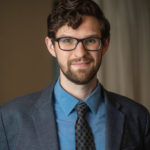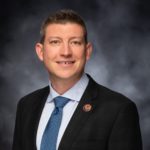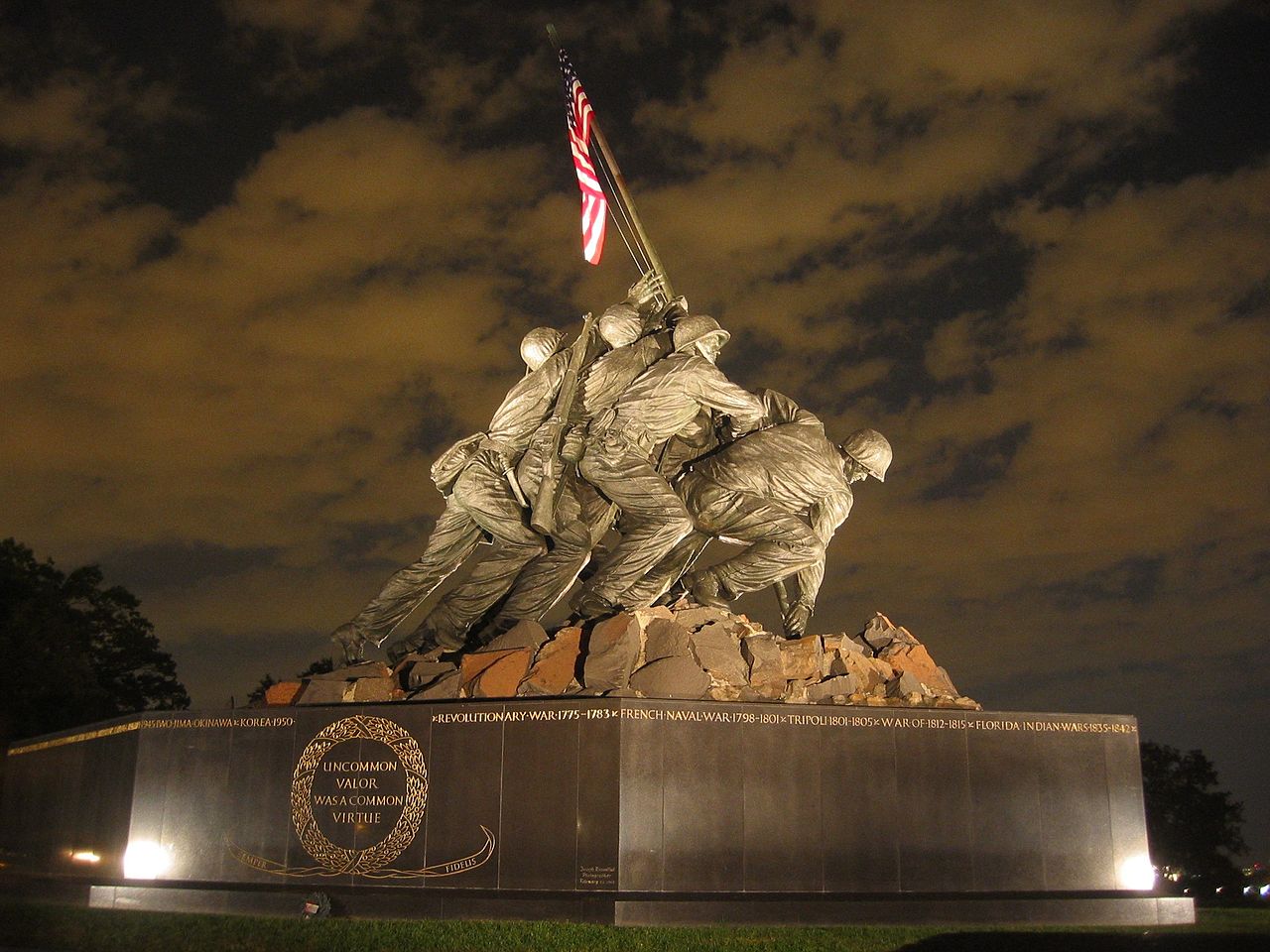The Joe Foss Institute has recently merged with the School of Civic and Economic Thought and Leadership at ASU, which seems a natural pairing given the Institute’s dedication to civic education and leadership. Let me start with a basic question about the Institute’s mission. Who was Joe Foss and how are you carrying out his vision?
Aaron Kushner

Joe Foss grew up in a farmhouse with no electricity in Sioux Falls, South Dakota, and had a love for planes since the age of 12. Commissioned as a second lieutenant, Foss became a fighter pilot and was sent to the South Pacific.
During World War II, Foss was the leading fighter ace of the United States Marine Corps, eventually racking up 26 confirmed downed enemy aircraft and 16 probable kills, equaling famed ace Eddie Rickenbacker’s World War I record. In May 1942, he received the nation’s highest award, the Congressional Medal of Honor.
After the war, Foss returned to South Dakota, helped organize the state’s Air National Guard unit and was elected to the South Dakota House of Representatives. Eventually, he became the Commander of the South Dakota Air National Guard, retiring with the rank of Brigadier General.
In 1954, at age 39, he was overwhelmingly elected the youngest Governor of South Dakota. He went on to become the first Commissioner of the American Football League and helped create the Super Bowl. In 1966, he entered the world of television, becoming the host of ABC’s The American Sportsman.
“Retired” to Arizona, Foss traveled the world talking about leadership, patriotism, public service and the importance of having an appreciation for America’s freedoms. He began meeting with groups of young people in schools, which led to the creation, in 2001, of the “Veterans Inspiring Patriotism” program—a program that provides students an opportunity to learn from a trained veteran the roles and responsibilities of active, engaged citizenship. The creation of this program launched an effort to search for veterans nationwide to share their personal stories, while bringing educational materials into the classroom.
There are a handful of groups and countless individuals who provide the unique opportunity to welcome a veteran guest speaker. The American Legion offers the “Americanism” program. Veterans Heritage Project provides students the opportunity to interview veterans and document their stories for permanent preservation in the Library of Congress. The Joe Foss “Veterans Inspiring Patriotism” program brings speakers and other educational resources to classrooms nationwide. As a young Army veteran, I was introduced to the Joe Foss “Veterans Inspiring Patriotism” program shortly after graduating from Arizona State University.
Dylan Dalzotto

What are some of the advantages of training veterans in this program and getting them involved in the classroom?
Aaron Kushner

When we picture the “modern day” veteran, a handful of groups come to mind. The “Greatest Generation,” who survived the Great Depression and served our country not for fame or recognition, but because it was “the right thing to do.” Those who served in the “Forgotten War,” and continue to guard the demilitarized zone separating North and South Korea since 1953. Soldiers serving in Vietnam, marching through the rivers and swamps never knowing who was friend and who was not. As we fast forward to present day, we think of the countless young men and women enduring the heat of the Arabian Desert or the extreme winter temperatures in one of the dozen mountain ranges throughout Afghanistan. The efforts of the American Soldier preserve our freedom for generations to come. They fight to provide opportunities to people they have never met, and often, to people they’ve never even heard of.
For nearly 20 years our nation has been at war. America’s youth cannot recall a time where our country has not been involved in conflict. Many who grew up during the post 9/11 era are now of legal age to vote, serve on a jury, run for public office and serve in the Armed Forces. The same men and women who fought for these rights are now educating and inspiring students to take advantage of the unique freedoms and opportunities we have as American citizens.
Through classroom visits, veterans are bringing the power of story and history to youth nationwide. Those who swore to uphold and defend the Constitution from enemies foreign and domestic, those who answered the call of duty, are continuing their service in a different venue—in the classroom. These are the individuals needed to express the importance of being an active, educated and engaged citizen. As teachers know, stories transport children to a new level of understanding; the power of “living history” inspires students to serve in their own right, and brings concepts of citizenship and freedom to life.
Following the visit of a veteran speaker, students can test their civics knowledge on the Joe Foss website, where they can find an interactive version of the 100-question citizenship test. The test can be taken in 10, 25 and 100-question formats; each offers several videos, providing students an additional layer of learning. For teachers, the online instructor guides and lesson plans are available for all questions, each containing projects and exercises to bring civics to life in the classroom.
Veteran speakers can do a tremendous job inspiring a sense of patriotism and educating our youth on the importance of their rights, roles, and responsibilities as citizens. They are also unique assets when providing history lessons that detail the conflicts in which they served. Having a person who was there, who lived the history the students are studying, makes the stories real. Veterans can become role models that students wish to emulate. They remind them of grandparents and great grandparents they may have never met because they passed away before they could know them. They light the path for those who follow to show them what is possible.
Dylan Dalzotto

What, in your opinion, is the single most important practical lesson students can learn from this program?
Aaron Kushner

It’s the power of story and real-world experience. Veterans in our program invest their time educating children in the realities of citizen leadership, students who will lead our nation into the future. As Joe Foss once said, “We can’t expect them to understand patriotism if they don’t understand how we got where we are.”
Dylan Dalzotto

Thank you for taking the time to chat a little about the Institute and the unique role veterans can play in cultivating the next generation of citizen leaders.
Aaron Kushner

Thanks Aaron, I really appreciate the opportunity. We are very excited about the collaboration between Joe Foss and the Center for Political Thought and Leadership. Together, the combined programming will offer more resources for teachers and education programs around the country.
Dylan Dalzotto



